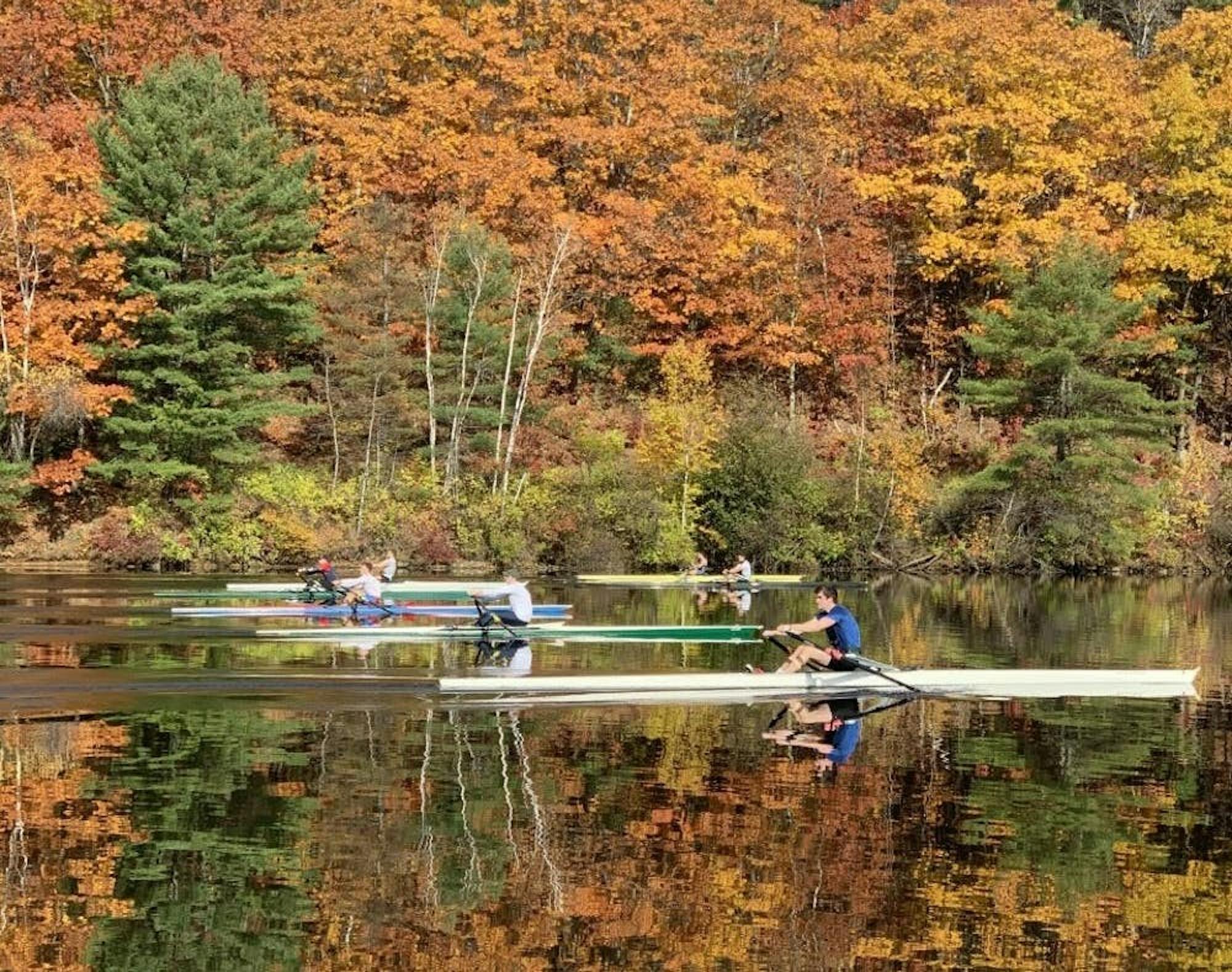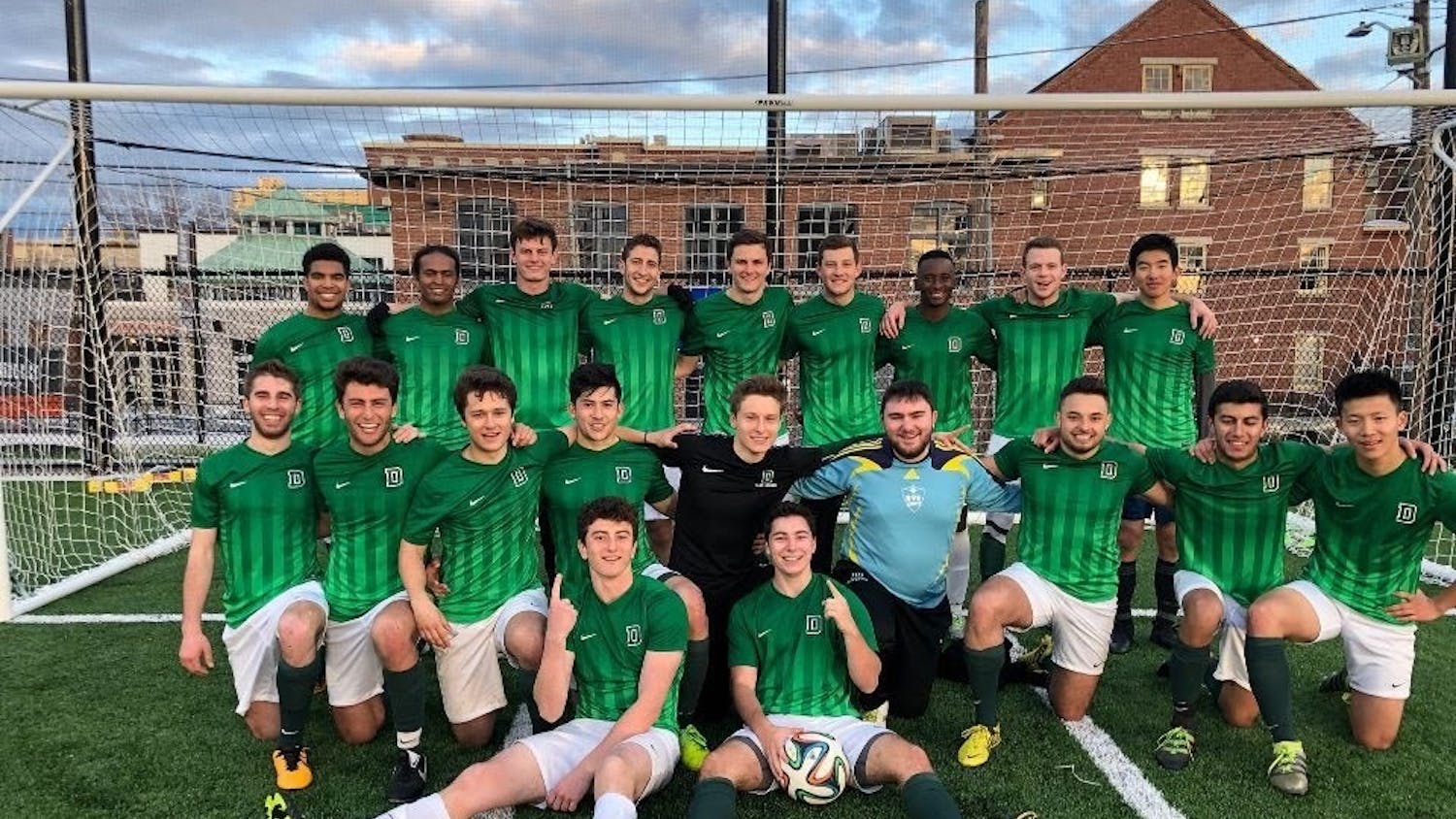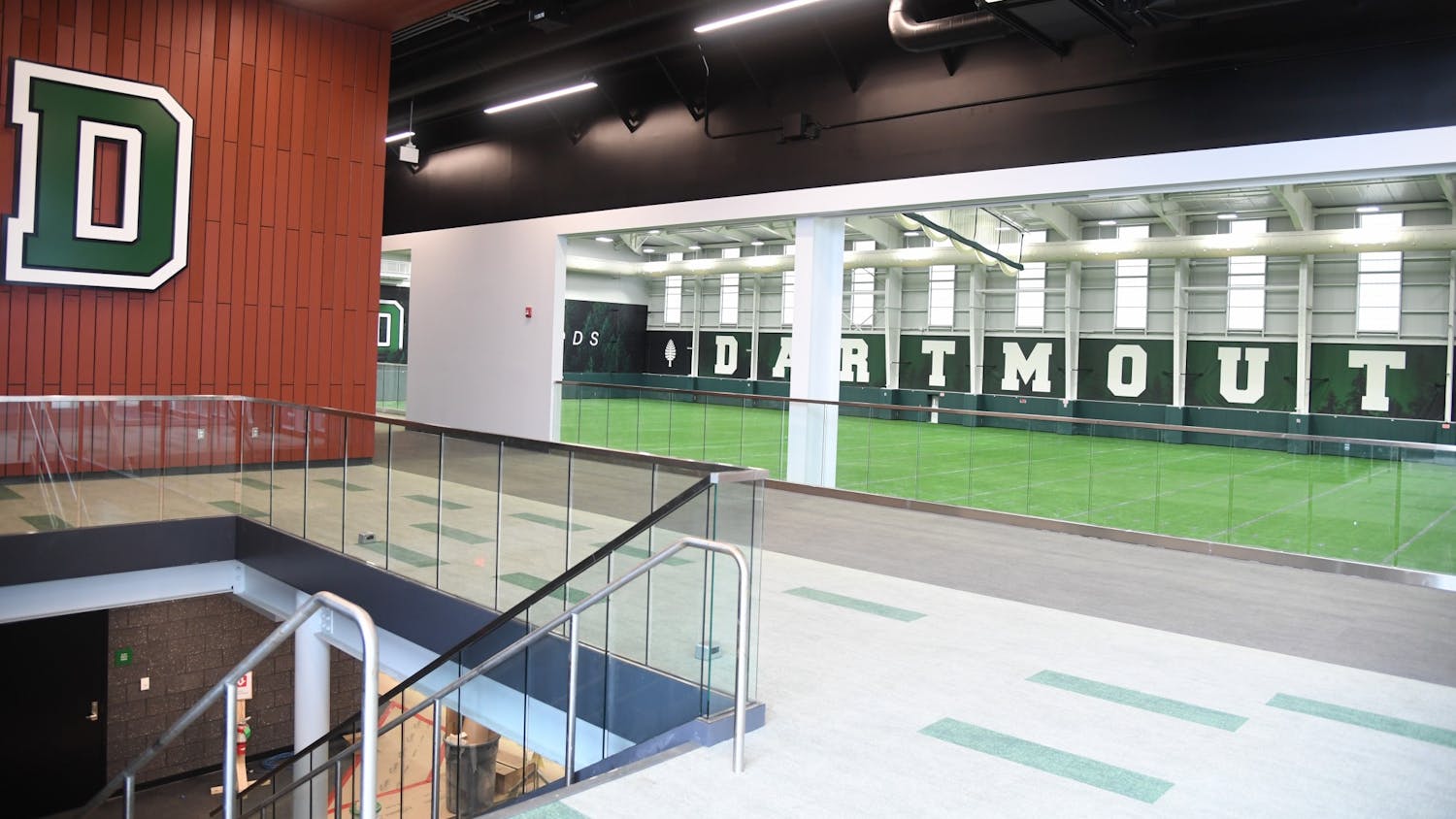As an unusual fall term draws to a close, Dartmouth’s sports teams have continued to find ways to practice while adhering to COVID-19 guidelines. Currently, all teams remain in stage two of the College’s three-stage return-to-sports protocol. During phase two, teams have been able to hold practices, albeit with restrictions on shared equipment, number of people and practice duration.
Teams have worked with the athletic offices to maximize the benefits of practice under these restrictions. With facility and equipment use limited, teams have separated into smaller training groups practicing at different times throughout the day.
According to head coach Wyatt Allen, the men’s heavyweight rowing team has this term functioned in pods of eight to 10 rowers. Players were separated into these pods based on class year, academic schedule and housing location. This strategy has allowed all 36 rowers on campus to train each day.
Women’s rugby is also practicing in pods. Their pod system only allows athletes to train with the same five people every training, which makes it hard to eventually reincorporate the skills developed into a full team setting, according to rugby player Alejandra Ada ’22.
“We’re really focusing on our micro skills of rugby,” Ada said. “Rather than learning new plays, we’ve been building our individual skills as a player.”
Though COVID-19 guidelines have limited in-person interactions between teammates, Ada said the rugby team has relied on its upperclassmen to maintain a sense of community. For example, she said, upperclassmen both on and off campus have made efforts to reach out to the freshmen to guide them through training tactics on Zoom calls.
Meanwhile, for many freshmen, training together in pods has helped them grow closer with their teammates.
“Despite the restrictions, [training in pods] has given the freshmen a really good opportunity for us to get super close,” women’s basketball player Mia Curtis ’24 said. “You wouldn't think we just met each other seven weeks ago.”
Despite only being able to work in small training groups, teams are actively coming up with ways to ensure that the whole team, whether on or off campus, can continue to push each other.
“There [is] a group of sophomores who are off campus who have been doing the same drills that we are doing,” Curtis said. “In a way, we are challenging one another and competing against each other, which is fun.”
As it considers a transition to phase three during the last weeks of the fall, the athletics department will continue to monitor the public health situation. Although time is running out, a transition to phase three — which involves scrimmaging and close-contact drills — is not completely out of question.
“We haven't ruled anything out; we're still taking it a step at a time,” head athletic trainer Ben Schuler said. “There has to be some changes in college policy, and we find out about [those] changes the same time as everyone else does. So once we get the information, we [will] try to adapt as quickly as we can.”
The decision-making process involves coordination between the athletics department and the College administration. According to Schuler, officials in charge of the return-to-sports initiative have met and will continue to meet regularly with the various subgroups of the COVID-19 task force. As decisions are made at the administrative level, the athletic department determines how it will proceed.
Looking ahead, the winter term will follow a similar staged approach starting with a mandatory two-week quarantine period. Once a definitive reopening plan has been announced, the athletics office will iron out the details of how to safely practice while confined to the indoors by winter weather.
Other factors to be considered include state and local regulations and the plans of the Ivy League conference. Although Dartmouth policies often match or exceed state regulations in strictness, the recent temporary closure of hockey rinks in New Hampshire has shown that new government policies could have immediate effects. The Ivy League office will be responsible for announcing any conference-wide change of plans regarding competition. As soon as the Ivy League’s decision is reported, Dartmouth will adapt its own plan.
“The College is still working through any changes to its reopening plan for the winter term, and we've got to kind of wait to get that before we can make any changes,” Schuler said. “The Ivy League itself has not announced any shifts in that base approach, so that's sort of the approach we're taking as we plan for winter.”
For Dartmouth coaches, the winter will bring its fair share of challenges — including a new set of athletes on campus. Remote training will continue as many upperclassmen will be living off campus. The outdoor spaces that have made larger distanced practices possible will no longer be available. Coaches and players alike may have to wait until spring for any semblance of normal activities.
“I honestly don't know about the spring,” Allen said. “I’ve tried to stay optimistic, but I think there's a lot that has to happen between now and then … I think the winter term, we're not going to have a big group here on campus. A lot of our team is elected to stay off campus for the winter term … so I think, for us, it's gonna be pretty quiet.”
However the winter term looks, the teams will make the best out of the situation.
“I really have to applaud our coaches for getting very creative and finding ways to engage our students and really build skills and systems while maintaining all of the restrictions that have been put in place by the College,” Schuler said.




